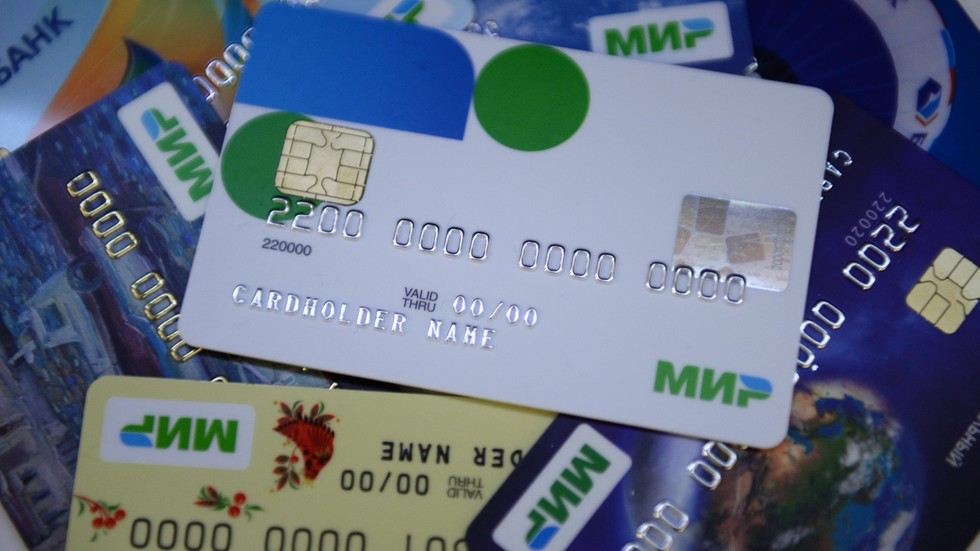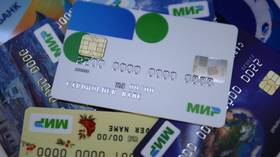
Demand for Mir, the alternative to Visa and Mastercard, has been on the rise

© Sputnik / Aleksey Philippov
Russia’s Mir payment system has experienced a steady increase in demand for new cards since last year, the system’s operator said on Wednesday.
Between 5.5 and 6 million Mir cards were issued per month in 2022. The trend has continued this year, with roughly 29 million cards issued in the first five months of 2023, Vladimir Komlev, the head of the National Payment Card System (NSPK), announced at the St. Petersburg International Economic Forum. The total number of Mir cards issued has reached 211 million, he added.
Russia started developing its own national payment system when the US targeted the country with sanctions in 2014. The Mir cards went into circulation in December 2015.
Last year, as Moscow was hit by further sanctions in response to its military operation in Ukraine, including cutting many Russian banks off from SWIFT and Visa/MasterCard, the government started promoting the domestic system as a reliable alternative.
Russia’s SPFS interbank messaging system ensures the transfer of financial messages between banks both inside and outside the country.
Mir cards issued by Russian banks are currently accepted in Cuba, Armenia, and Belarus, among others.
READ MORE: Moscow rekindles economic ties with Cold War ally
At the forum, the head of the Myanmar central bank declared that his country would start accepting Mir cards by December, RIA Novosti reported on Wednesday. An agreement has also recently been reached with Iran.
Mir cards had also been accepted in Türkiye, Vietnam, and Kazakhstan. However, after the US Treasury’s Office of Foreign Assets Control (OFAC) threatened sanctions on any financial institution outside of Russia using Mir, banks in those countries stopped the system. Türkiye has since said it would develop a joint payment system with Russia.
For more stories on economy & finance visit RT’s business section




